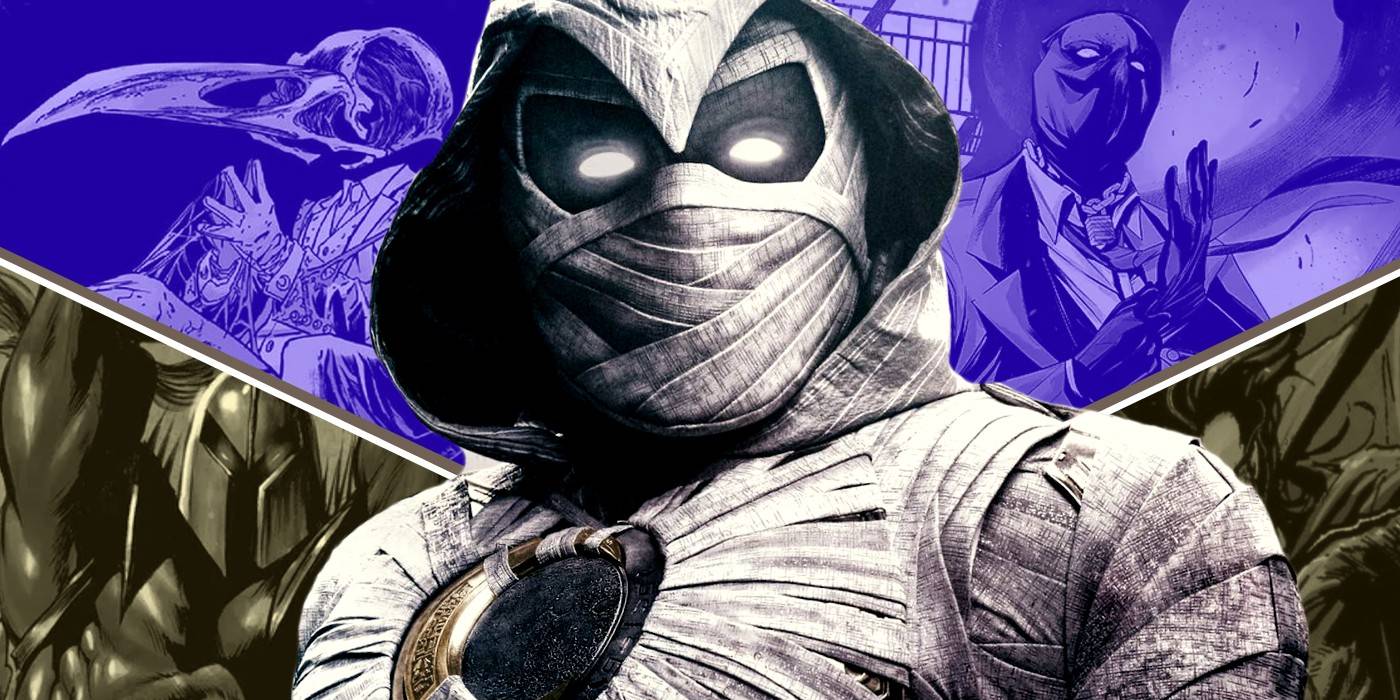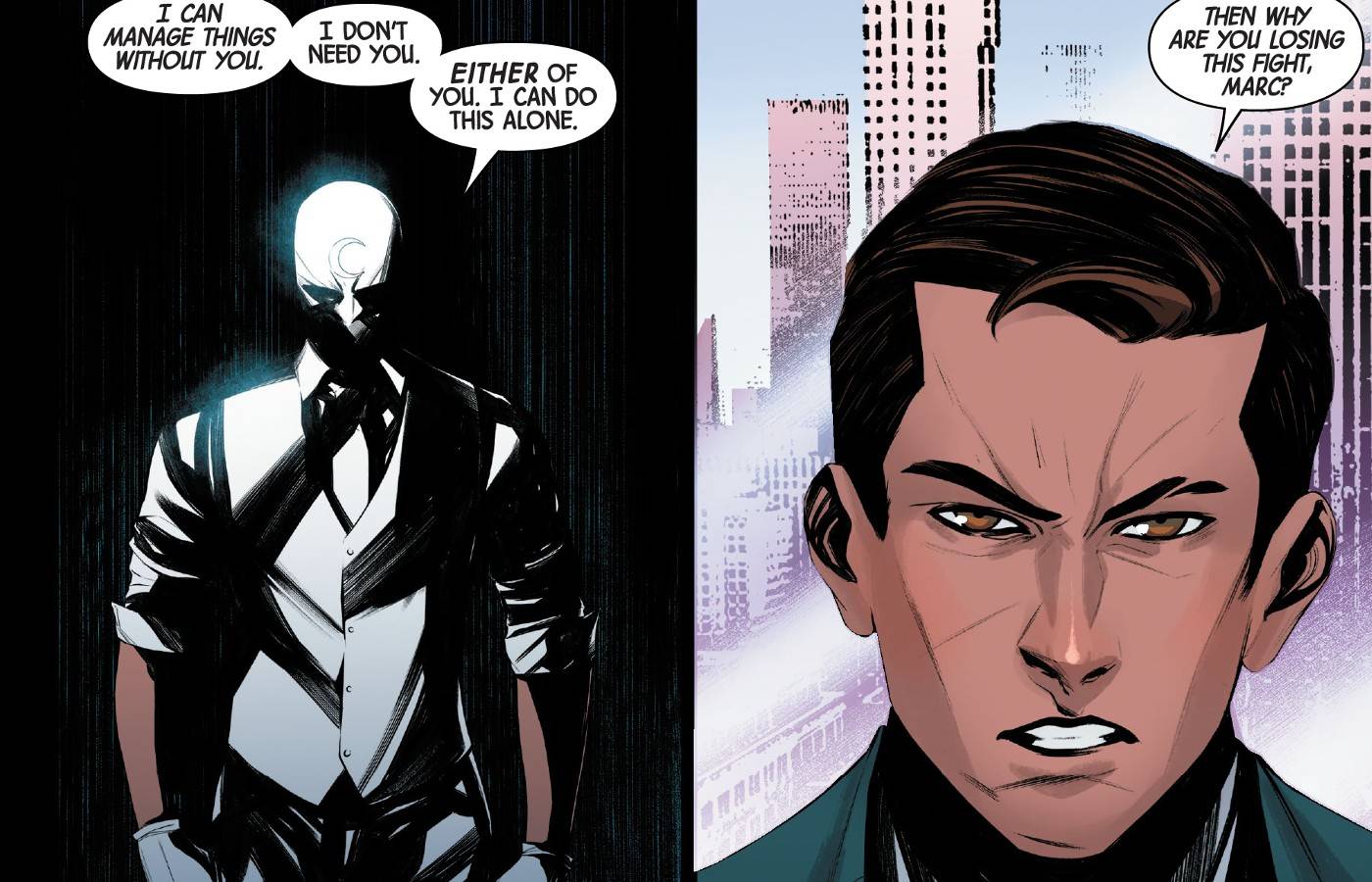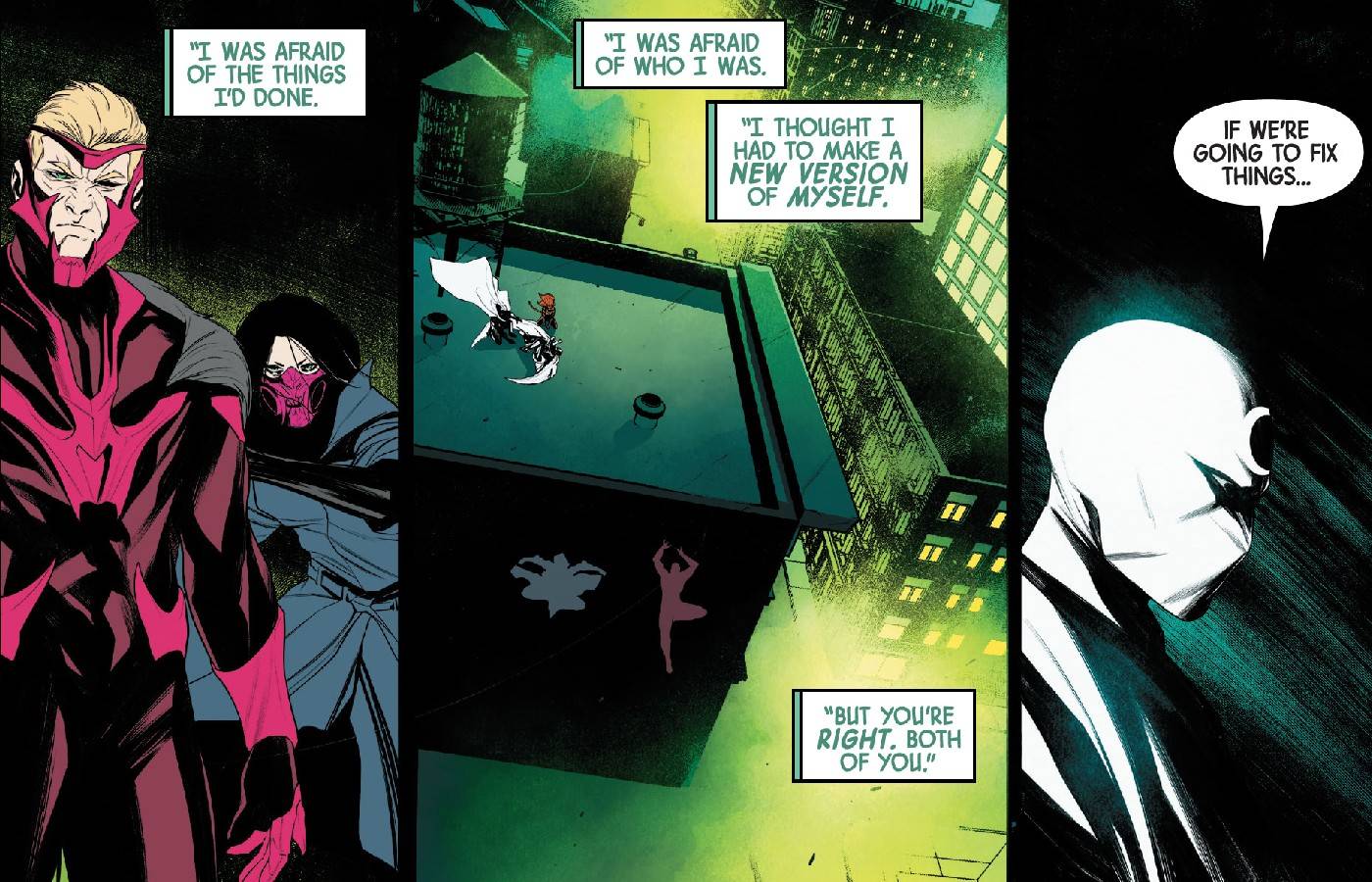
With a number of deadly villains in his rogues’ gallery, several different enemies are gunning for the spot of Moon Knight’s greatest nemesis. In reality, Moon Knight’s greatest nemesis may be no outside foe at all.
This idea is at the center of Moon Knight #14. In the issue, Marc Spector holds counsel with Steven Grant and Jake Lockley, all three alternate personas residing within the same body. Throughout this run of Moon Knight, Marc Spector has held the reins as he runs his Midnight Mission, a final vestige of comfort for travelers of the night who may need the protection that Mr. Knight can provide. Following Moon Knight’s confrontation with the Avengers during the Age of Khonshu, Spector convinced Grant and Lockley to allow him to be solely in charge of their body, hoping a unified front would keep other heroes from thinking his dissociative identity disorder makes him a liability in the field. However, when Moon Knight nearly kills the villainous Zodiac in front of his friend Reese, Steven Grant emerges to stop him from committing murder. This leads Marc to reconvene with his other identities, determining the best way for the trio to proceed.
Jed Mackay and Alessandro Cappuccio’s Moon Knight #14 revolves around this meeting of the minds, deriving its title – “Soldier, Rich Man, Scoundrel” – from Marc and his alters’ identities. Throughout the issue, the three personas explore their predicament, getting to the root of their reputation as one of the Marvel universe’s most dangerous heroes. In the end, they determine that the true cause of Marc Spector’s problems is largely Marc Spector himself, not his alternate personas or some outside villain.

Moon Knight #14 takes a hard look at Moon Knight’s history in the Marvel universe, examining how the blame may lie with Marc more than any of his villains. Though Marc and other characters often write off his excessive violence as a result of his DID, Steven and Jake point out that their influence has rarely – if ever – been a true liability to Marc, with most of his issues resulting from his own violent tendencies. In fact, Marc’s alters assert that their influence has often helped Marc, balancing out his violent and isolationist tendencies with their own personalities.
As Stephen points out, Marc’s own actions garnered him the reputation he carries, despite the villains and trials he’s faced along the way. It’s a brilliant contextualization of one of Marvel’s most self-destructive characters, framing his violence and isolation essentially as an outlet for depression and self-loathing. This isn’t the first time Marc’s self-hatred and depression have been addressed in this run, but it’s certainly the most direct. In the end, Moon Knight’s biggest issues stem from Marc’s tragic actions, suppressing his alters in a bid to feel “normal” and pushing others (including Jake and Stephen) away to mitigate his own pain.
This issue marks a big and exciting change for Moon Knight going forward, as Marc finally accepts his flaws as fixable and takes steps to end his depressive spiral. He resolves to address his issues head-on with Jake and Steven, working together rather than trying to craft some new life on his own to escape his past and pain. The villain causing the most damage to Moon Knight’s life and reputation is often Marc Spector, but he now knows it doesn’t have to be that way forever.
